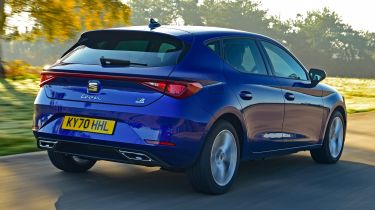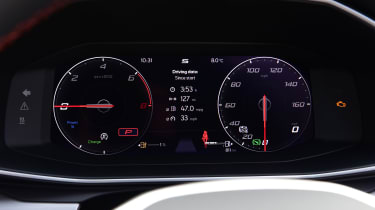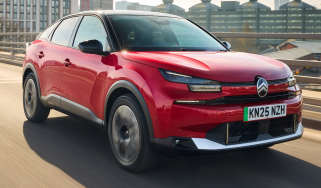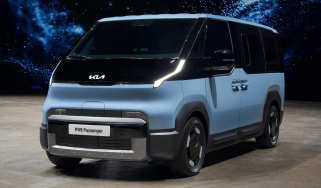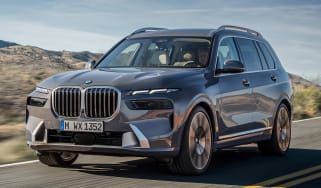SEAT Leon review - MPG, CO2 & running costs
Running costs for the Leon are low thanks to efficient engines and a plug-in hybrid model

The 113bhp 2.0-litre TDI is the most economical of the regular petrol and diesel engines. It should return 65.4mpg, so it’s ideal for motorway driving.
Not that the petrol engines are in any way inefficient. The 128bhp 1.5 TSI Evo offers 51mpg, dropping to 48.6mpg for the 148bhp model. The seven-speed DSG auto transmission is slightly more efficient than the six-speed manual gearbox.
The 1.0 TSI Evo should return 51.2mpg in both manual and automatic guises in entry-level SE form although in FR guise it drops by 0.3 should you opt for the automatic ‘box. Both the 1.0-litre and 1.5-litre engines are available with 48-volt mild-hybrid technology, but only in conjunction with the DSG.
The Leon e-Hybrid combines a 1.4-litre petrol engine with an electric motor and a 12.8kWh battery pack to make it the greenest SEAT Leon you can buy. Fully charged, the e-Hybrid will deliver up to 40 miles of pure electric range. Thanks to CO2 emissions of just 27g/km to 30g/km, depending on the trim, the plug-in hybrid Leon is also cheap to tax, with Benefit-in-Kind (BiK) rates of as little as eight per cent.
Insurance groups
The SEAT Leon slots into insurance groups 15 to 23, with the 1.0-litre versions the cheapest to insure. The e-Hybrid sits in either group 26 or 27, depending on which trim level is chosen, but the extra cost of cover will be offset by the lower running costs.
Check if your car needs an MoT and view its complete history with our MoT History Checker...
Depreciation
The Leon hatchback performs reasonably well in terms of residual values, holding onto an average of 54 per cent of its original list price after a typical three-year/36,000-mile ownership period, which is even better than the Volkswagen Golf. Both estate models and those fitted with a plug-in hybrid powertrain tend to retain their values best, although it’s fairly even across the range.
To get an accurate valuation on a specific model check out our valuation tool...

